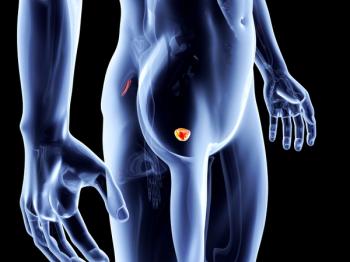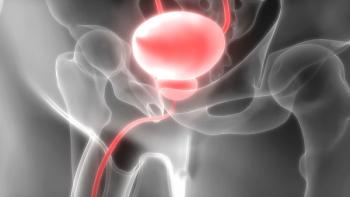
Model Using PSA Test Can Help Predict Time to Prostate Cancer Relapse
A model based on a series of PSA tests can predict the time to relapse in prostate cancer patients who underwent radical prostatectomy, according to a new study.
A model based on a series of prostate-specific antigen (PSA) tests can predict the time to relapse in prostate cancer patients who underwent radical prostatectomy, according to a new study. The correlation with relapse was still significant when treatment with androgen deprivation therapy (ADT) was prescribed.
“One in four patients who undergo prostate cancer surgery experiences a relapse,” said study lead author Ilaria Stura, of the University of Turin, Italy, in a
Because previous work has shown that tumor volume is linked to PSA production in patients who undergo radical prostatectomy, the researchers created a mathematical model based on data from 3,538 patients; only those with at least four post-surgery PSA tests were included. The results were
Based on those patients, the investigators created a parameter known as α, which Stura explained is essentially a ratio between the energy required by a cancer cell to survive and the energy it needs to replicate. Cancer cells have higher rates of replication and thus greater production of PSA, allowing the parameter to represent the aggressiveness of tumor cells.
The α parameter was the only factor found that could significantly predict the time to relapse (P < .001); Gleason score, pathologic stage, post-surgery PSA levels, and other factors could not predict relapse timing.
Specifically, an α of between 0 and 0.01 implies that there is a 62% likelihood relapse will not occur until 48 months after surgery, and a 93.6% chance it will not occur until after 36 months. Between 0.01 and 0.02 was not as strong a predictor; 61.1% of those patients relapse before 36 months, and 22% relapse after 48 months. For larger α values (between 0.02 and 0.04), relapse will occur in less than 48 months 100% of the time, and in under 24 months in 78.9% of cases. For values above 0.04, the time to relapse will be less than 24 months 100% of the time.
Specifically in the patients who received ADT, an α between 0 and 0.01 resulted in relapse more than 48 months out in 72.7% of cases; this number rose to 100% if the adjuvant therapy is given for more than 12 months.
The study is limited by its reliance on retrospective data, but the authors wrote that this could be a valuable and simple tool in helping predict prostate cancer relapse. “We could hence provide a biologically meaningful and practical parameter for promoting personalized medicine in this and possibly in other fields of application,” they wrote.
Newsletter
Stay up to date on recent advances in the multidisciplinary approach to cancer.















































